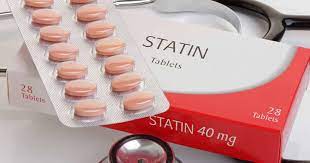The U.S. Food and Drug Administration (FDA) has granted approval to fitusiran, a novel therapy for the prevention of bleeding episodes in individuals with hemophilia A or B, with or without inhibitors. This approval marks a significant advancement in hemophilia management, offering a potentially less burdensome treatment option for patients.
Fitusiran is a first-in-class small interfering RNA (siRNA) therapeutic that works by reducing the production of antithrombin in the liver. Antithrombin is a protein that inhibits blood clot formation, and by lowering its levels, fitusiran promotes a more balanced clotting process. This mechanism of action differs from traditional hemophilia treatments that replace missing clotting factors.
Sanofi, the developer of fitusiran, highlighted the potential for this therapy to simplify prophylaxis for individuals worldwide. “This agent has the potential to enable prophylaxis for people around the world living with hemophilia A or B with or without inhibitors by virtue of its low overall treatment burden, with as few as six small-volume subcutaneous injections per year that do not require refrigeration,” stated a company press release.
The FDA’s approval was based on data from the ATLAS development program, which included several clinical trials. Notably, the ATLAS-INH trial involved 57 men with severe hemophilia A or B with inhibitors. Participants were randomized to receive either 80 mg of fitusiran once monthly or on-demand bypassing agents for nine months. The results demonstrated a remarkable 91% reduction in the mean annualized bleeding rate (ABR) with fitusiran, decreasing from 18.1 events in the on-demand group to 1.7 events in the fitusiran group. Furthermore, two-thirds of the fitusiran patients experienced no treated bleeding events, compared to only 5% in the on-demand group.
Similarly, the ATLAS-A/B trial, which included 120 men with severe hemophilia A or B without inhibitors, showed a significant reduction in ABR.8 The mean ABR was 3.1 events in the fitusiran group and 31 events in the on-demand clotting factor concentrate group. Half of the patients on fitusiran had zero treated bleeding events versus 5% of the on-demand group.
While fitusiran demonstrated significant efficacy, it was associated with certain adverse events. The most common side effect was an increase in alanine aminotransferase (ALT) levels, observed in up to 32% of participants. Less common side effects included cholelithiasis (gallstones), cholecystitis (gallbladder inflammation), and thrombotic events.
To mitigate the risk of adverse events, the dosing regimen for fitusiran is now based on individual antithrombin levels, aiming to maintain antithrombin activity between 15% and 30% of normal, rather than the fixed 80mg dose used in the clinical trials.
This approval offers a new avenue for hemophilia management, potentially improving the quality of life for many individuals living with this condition.
Disclaimer: This news article is for informational purposes only and does not constitute medical advice. Consult with a qualified healthcare professional13 before making any decisions related to your health or treatment. The information provided14 is based on available data at the time of writing, and medical knowledge is subject to change.(https://www.medscape.com/viewarticle/fitusiran-approved-hemophilia-b-2025a10007k7)












